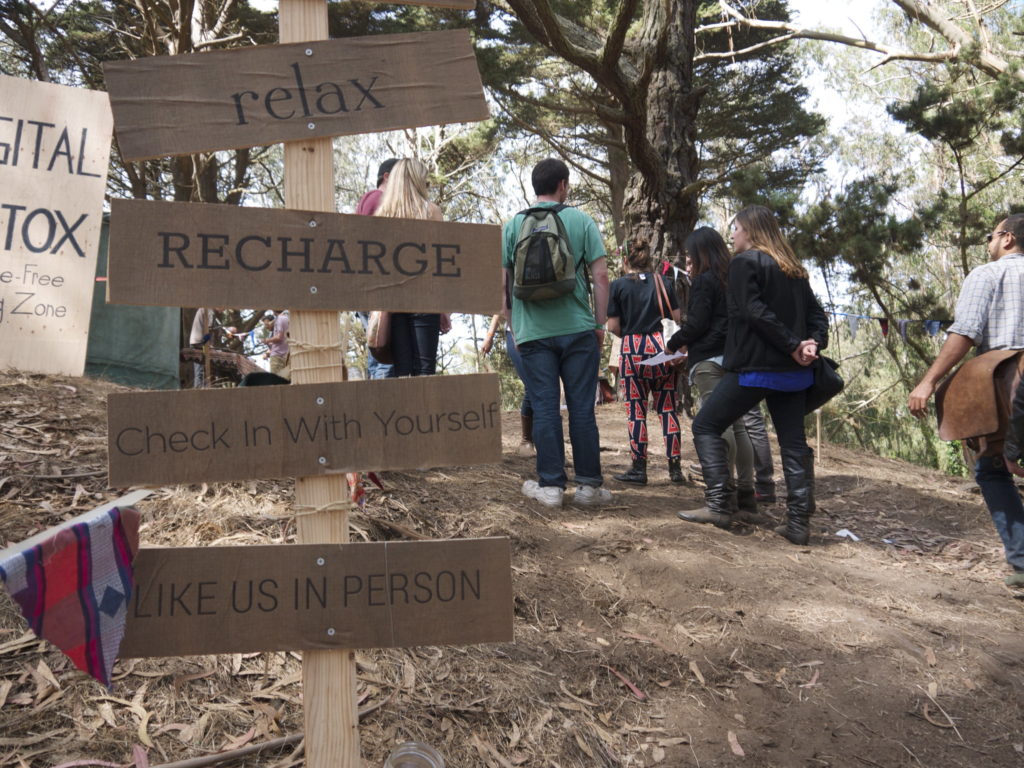By Yvonne Milosevic
Can you remember the last time you felt utterly bored? We didn’t think so. With 24/7 entertainment that fits in your pocket, it’s now practically impossible to experience boredom.
Take the waiting room at the dentist. Once known as the dullest place on the planet, it often had only dog-eared issues of Golf Digest and Good Housekeeping to distract you from the unpleasantness to come. Now, when the hygienist calls your name, you’re 27 slides into a BuzzFeed quiz to determine whether you’re an art history expert who should be head curator at the Louvre.
This is a prime example of what University of Chicago professor Sendhil Mullainathan would call the “self-driving mind,” which is a major creativity killer. Addressing a crowd at the Think Better speaker series, Mullainathan explained that a constant stream of emails, texts, Google News, Facebook, Instagram and Twitter posts overwhelms people with digital noise. We straight-up refuse to accept nary a moment of boredom in our modern lives.

Surrounded by digital junk food
“People are gorging themselves on data in unhealthy ways,” Mullainathan says. “In the 21st century, we are surrounded by these technologies that are making us dumber and completely oblivious,” he adds. “We are a nation overwhelmed with an abundance of media, and it’s unhealthy.”
Studies show constant, mindless consumption of technology and social media can lead to depression, anxiety, lousy sleep, and poor academic performance. It also dulls our ability to innovate. But, Mullainathan believes there is hope.
“I think we are on the verge of a big change,” he says. “Before long, companies are going to start to offer products to help us manage our media intake, just like Weight Watchers or Atkins. And it is artificial intelligence that will help us get there.”
As an experiment, Mullainathan analyzed his own browser history and discovered that Google News sent him “down the internet rabbit hole” on a daily basis.
“How many of you have ever looked at your (browser) history file?” Mullainathan asks. “Pick a day. Pick a random time. Just start and follow the trail of your mind. It is the ravings of a madman. It’s amazing. Oh, look. He is interested in buying a hot air fryer. Now suddenly he is interested in something else. What is going on? Oh, now he’s back to the hot air fryer. Who is this guy? This guy is me!”
Now, Mullainathan says he avoids checking Google News while he’s working.
“But I can’t live without my phone!”

You can start your detox by putting the phone back in your pocket and letting your mind wander. A recent study in the journal Academy of Management Discoveries finds that boredom sparks creativity and problem-solving by allowing the mind to daydream. Pick an activity that doesn’t require concentration, like doing the dishes, ironing, or taking a walk on a familiar route. In fact, spending time in nature is one of the best ways to boost creativity.
In essence, boredom is “a search for neural stimulation that isn’t satisfied,” Sandi Mann, a senior psychology lecturer at the University of Central Lancashire in the U.K, tells Time magazine. “If we can’t find that, our mind will create it.”


